


Engaging in self-care is never an easy feat, especially when you are going through a challenging period. For some, self-care is viewed as an act of selfishness but in reality, it is not. It is about protecting your peace and removing negativity from your life.
In this article, you’ll discover 12 self-care tips to boost your overall health.

Self-care can be defined as the act of engaging in practices that help to improve your overall health and well-being. It plays an important role in contributing to your overall happiness and satisfaction in life [1],[2].
Self-care is not always the same, it can look different for each individual. An activity that may be therapeutic for one could cause stress and anxiety for another. Your self-care routine depends on your own specific needs.
Self-care has many different forms besides the usual physical and mental self-care.
The different types of self-care are [3]:
Physical self-care focuses on activities or practices that will help to strengthen or improve your physical health. Getting good quality sleep, exercising regularly, and eating a healthy meal are examples that can boost your physical well-being.
Mental self-care is doing any activities that help promote relaxation and reduce stress and anxiety. Practicing meditation, journaling, or reading a book can improve your mood and mental well-being.
Emotional self-care is about recognizing your emotions and taking steps to regulate them. This includes the practice of journaling, reflection or even seeking professional help from a therapist [2].
Social isolation and loneliness are factors that increase negative social behaviors (e.g. smoking, eating poorly, etc.). Engaging in social self-care helps to improve your emotional health by fostering a sense of belonging and preventing isolation [4].
This involves connecting with a higher power or a higher being in search of wisdom and peace. You can foster this by practicing meditation or reading a prayer for a sense of inner peace.
Practicing self-care is the first step to investing in yourself and prioritizing your well-being. It is a continuous journey that requires dedication and resilience.
Some of the benefits of practicing self-care include [5], [1]:
We’ve established that practicing self-care looks different for everyone. Going for a walk may be a good way to manage stress but for another, this could be stress-inducing.
This is why we have compiled 12 easy ways to practice self-care below. Feel free to incorporate any of these practices into your daily routine.
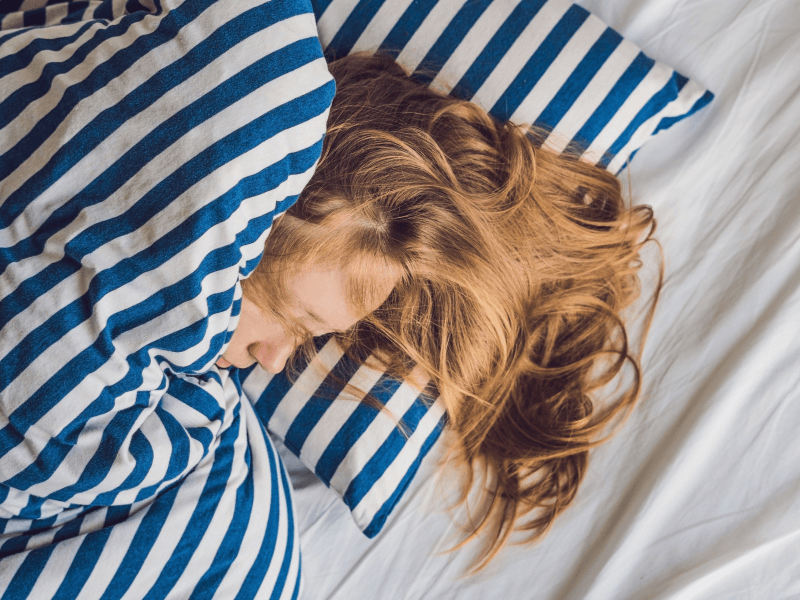
Sleep is important for good health. It keeps the mind and body healthy.
When you do not get enough quality sleep at night, it predisposes you to the risk of diseases such as heart disease, stroke, obesity, and more. Good quality sleep means getting at least 7 hours of sleep each night, having uninterrupted sleep, and having a consistent sleep schedule [6], [7].
Doing so can help prevent you from falling sick often, lower your risk for diseases, reduce stress and improve your mood. It can improve your physical and mental well-being as a whole.
Find out how many hours of sleep you need and the best time to sleep and wake up with our sleep calculator.


Staying hydrated is essential for maintaining optimal physical and mental health.
Water helps to maintain bodily functions like digestion, circulation, and body temperature. Various research shows that hydration is linked to mental conditions and functions. Being well hydrated can help to lower the risk of depression and anxiety and increase mental acuity [8].
Being dehydrated may also lead to lowered energy levels, self-esteem, and difficulty with concentrating on tasks. Hence, you should aim to drink plenty of water throughout the day! [9]

Exercise is one of the best things that you can do to lead a healthier and happier life.
Staying physically active has countless benefits for your health. In the short term, exercising regularly can help to reduce stress, boost mood, and increase your energy levels. In the long term, it can improve heart health, strengthen your muscles and bones, reduce the risk of heart-related diseases, and improve sleep quality.
Exercising is also beneficial for your mental health as the brain releases serotonin and dopamine. These ‘feel good’ chemicals work to combat feelings of anxiety and depression [10].
You are recommended to get between 150 minutes of physical activity minimally, and on a weekly basis to reap the full benefits of exercise.

Another self-care tip is to try meditating. Meditation helps you to connect to your inner self and build awareness of the present moment that you are in. Guided meditation and mindfulness meditation are popular techniques that involve training your mind to stay calm and cultivate positive thoughts. This reduces feelings of anxiety [11].
Alternatively, you can also engage in deep breathing exercises to distract your mind from overthinking. By focusing only on your breathing patterns, your mind will start to slow in preparation for your sleep.
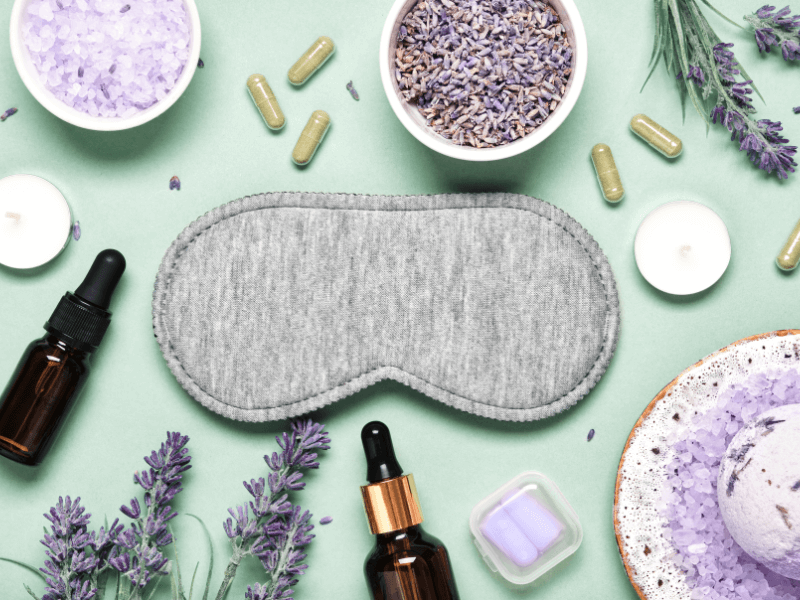
Sleep hygiene refers to healthy sleep habits to help you achieve a good night’s rest. Good sleep is a fundamental aspect of a good quality of life.
Prioritizing sleep hygiene is not just about getting enough sleep but it is also about routine and consistency. Sticking to a consistent sleep schedule by going to bed and waking up at the same time each day, even on weekends. This regulates your circadian rhythm so that you may find it easier to sleep and wake up.
See also: Sleep Hygiene: 14 Tips For Sleep Better

Gratitude is a form of expressed appreciation or thankfulness for what one has in life [12]. Practicing gratitude cultivates positive emotions that can reshape your outlook on life. It is a powerful health habit.
Making gratitude a habit may reduce depression, decrease anxiety, relieve stress, improve your sleep, and support heart health among other benefits. You can start practicing gratitude journaling— writing down three things that you are grateful for each day [13].
You may also like: 100+ Gratitude Quotes to Express Our Appreciation

Eating a healthy diet is important for maintaining good health. A healthy diet protects you from a number of chronic diseases like heart disease, diabetes, and cancer [14].
Having bad nutrition may affect your body’s ability to create hormones to properly regulate your moods. This may lead to feelings of irritation, depression, anxiety, or stress. Additionally, a healthy diet equips us with the energy and nutrients to carry out our day efficiently [15].
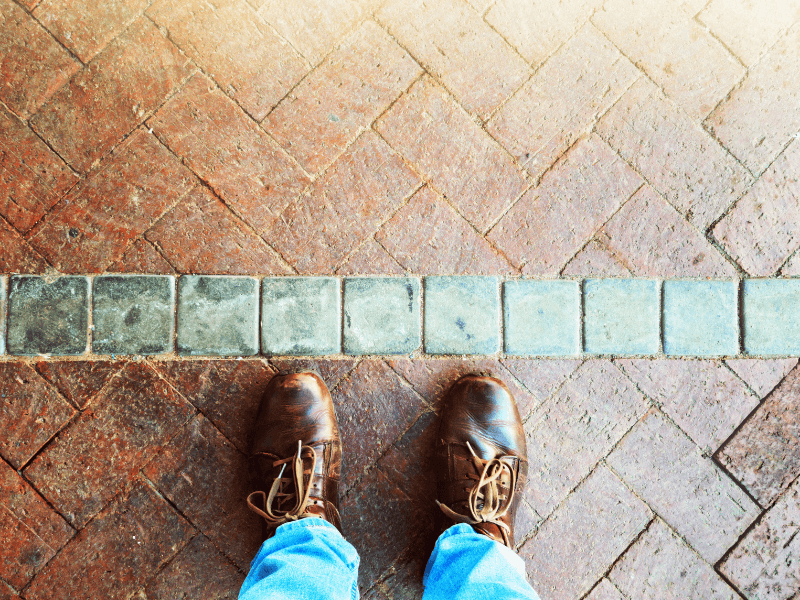
Setting boundaries isn’t being mean or selfish. Oftentimes, it is a way to protect yourself so that you can lead a happier and more fulfilled life.
Without this, you may find yourself constantly getting stuck in toxic or negative situations which may harbor feelings of resentment, overwhelmedness, or stress. Setting personal boundaries teaches you to prioritize your needs first, and protect your time and energy for a healthy balance. In turn, this will also allow you to provide better emotional support for others [16].
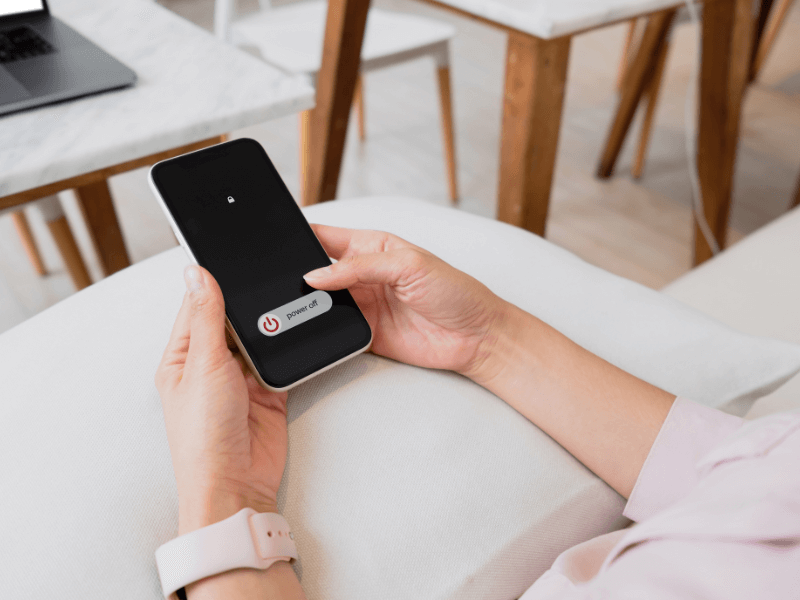
There is just so much negativity everywhere on the news and social media these days. Constantly reading about tragedies or horrific events can take a toll on your mental health. Too much screen time can lead to stress, anxiety, and depression.
For this reason, we should allocate time to do a digital detox and give ourselves downtime to rest and recover. Unplugging from technology or digital detox does not necessarily mean cutting off your electronic devices completely. Instead, it’s about being mindful and taking breaks when we need to [17]. This helps to prevent us from becoming overwhelmed or overstimulated.

Having a hobby or a relaxing activity that you can turn to, can be stress relieving. It can also provide us with a sense of control when it seems like everything else is spiraling out of control.
When we engage in activities or hobbies that we truly enjoy, our brain releases a chemical called dopamine. This chemical helps us not only feel relaxed and happier, it also keeps us motivated and more productive. Additionally, it’s a good way for us to steer clear of feeling burnt out [18].

Connecting and communicating with your loved ones like your family members is also a good self-care practice. It is a form of social self-care and prevents you from feeling as if you are all alone.
Having strong social bonds provides emotional support, comfort, and a sense of belonging. Being able to have a safe space to share your worries, feelings, and wins can feel good. It allows you to process your emotions and feel seen, heard, and understood. Nurturing these relationships can be a powerful support for both your mental and emotional health.
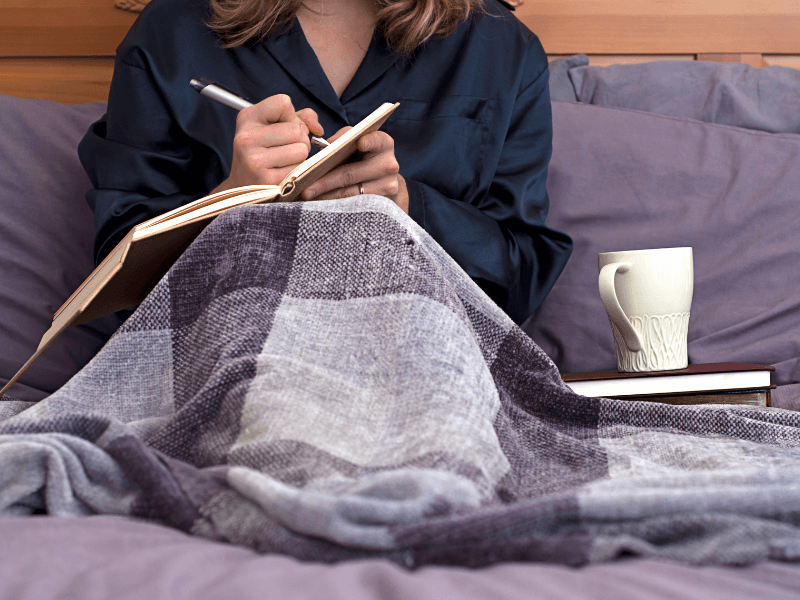
Keeping and writing in a self-care journal can also be a great self-care practice. If you don’t quite know how to express your feelings or feel uncomfortable about sharing your feelings with others, journaling is an alternative.
Journaling provides a safe space for you to jot down feelings, thoughts, or behaviors that may be difficult to share. It encourages you to reflect and become more self-aware of the areas in your life that are contributing to the negative emotions you feel and develop strategies to deal with them. It supports your physical, mental, and emotional health more healthily and sustainably [19].
30-Day Self-Care Challenge: Printables and Ideas
15+ Self-Care Memes For Well-Being
15 Printable Self-Care Checklist to Take Care of Your Daily Needs
18 Best Self-Love Journal Prompts For Self-Care Routine
30+ Free Printable Self-Care Planner Templates
21 Bullet Journal Ideas for Self-Improvement and Growth
Self-care is not a luxury but a necessity for us to improve our health and well-being so that we may lead happier and healthier lives. This is why we have to regularly engage in self-care practices like getting good quality sleep, having healthy sleep habits, setting boundaries, and nurturing both our minds and bodies.
Get started on your self-care journey with our patented sleep-tracking app, ShutEye®. ShutEye® helps you to improve your sleep quality with personalized sleep reports and sleep sounds. Try it now!
Abbott (2o24) Hydration and Mental Health: How Are They Related? [online]. Available at: https://www.nutritionnews.abbott/healthy-living/diet-wellness/Hydration-and-Mental-Health--How-Are-They-Related/
Fagan, C. (2021) Meditation Overview - 10 Minutes A Day That Can Change Your Life [online]. Available at: https://www.healthcentral.com/mental-health/10-minutes-that-can-change-your-life
Jordan, M. (2023) The power of connection: Self-care strategies of social wellbeing. Journal of Interprofessional Education & Practice, 31, 100586. Available at: https://doi.org/10.1016/j.xjep.2022.100586
Katzen, A. (2023) Unplugging For Self-Care: Tips for Reducing Screen Time and Recharging Your Mind [online]. Available at: https://www.previousmagazine.com/unplugging-for-self-care-tips-for-reducing-screen-time-and-recharging-your-mind
LeWine, H. (2024) Exercise & Fitness [online]. Available at: https://www.health.harvard.edu/topics/exercise-and-fitness
MasterClass (2022) Benefits of Self-Care: How to Practice Self-Care [online]. Available at: https://www.masterclass.com/articles/self-care
Millaci, T. (2017) What is Gratitude and Why Is It So Important? [online]. Available at: https://positivepsychology.com/gratitude-appreciation/
Minimalism (n.d.) How and Why Nutrition and Self-Care Go Hand-in-Hand [online]. Available at: https://minimalism.co/articles/nutrition-and-self-care#Why_Nutrition_is_a_Part_of_Mental_and_Physical_Self-Care
National Institute of Mental Health (2024) Caring for Your Mental Health [online]. Available at: https://www.nimh.nih.gov/health/topics/caring-for-your-mental-health
NIH News in Health (2021) Good Sleep for Good Health [online]. Available at: https://newsinhealth.nih.gov/2021/04/good-sleep-good-health
Office of Disease Prevention and Health Promotion (2024) Get Enough Sleep. [online]. Available at: https://health.gov/myhealthfinder/healthy-living/mental-health-and-relationships/get-enough-sleep
Papyrus (n.d.) The importance of setting boundaries and saying no [online]. Available at: https://www.papyrus-uk.org/setting-boundaries/
Reid, S. (2024) Self-Care Tips to Prioritize Your Mental Health [online]. Available at: https://www.helpguide.org/mental-health/wellbeing/self-care-tips-to-prioritize-your-mental-health
Riva, M. (2024) What Is Self-Care and Why Is it Important? [online]. Available at: https://www.ncoa.org/adviser/online-therapy/self-care/
Tan, J. (2021) The Benefits of Hobbies on Mental Health this Pandemic [online]. Available at: https://www.thoughtfull.world/mental-health/the-benefits-of-hobbies-on-your-mental-health-this-pandemic
WHO (2024) Healthy diet [online]. Available at: https://www.who.int/initiatives/behealthy/healthy-diet
Wright, K. (2023) How to Start a Self-Care Journal to Improve Your Well-Being [online]. Available at: https://dayoneapp.com/blog/self-care-journal/
Zhang, N., Du, S. M., Zhang, J. F., & Ma, G. S. (2019). Effects of Dehydration and Rehydration on Cognitive Performance and Mood among Male College Students in Cangzhou, China: A Self-Controlled Trial. International journal of environmental research and public health, 16(11), 1891. Available at: https://doi.org/10.3390/ijerph16111891